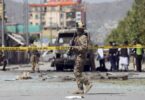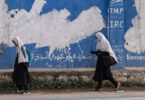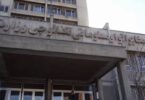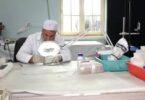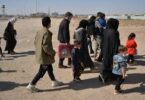KABUL (Agencies): The number of Afghan nationals crossing into Iran has dropped off sharply this month amid reports of fellow countrymen being treated badly by Iranian authorities.
The head of a private transport company in Afghanistan said that until recently, his company was transporting at least 2,000 Afghans a day into Iran but since reports of ill-treatment emerged, this tally has dropped to between 10 and 15 a day. Shaheen Shah, from the transport company said “cruelty” on the part of Iranian officials has resulted in the drop off of people traveling through Nimroz province to Iran.
Another bus company officer, Mohammad Zakar, said they had between 10 to 12 buses ferrying passengers to Iran daily but that this number has dropped sharply since the start of Ramadan. Nimatullah Arifi, a resident of Daikundi province, said that he had been on his way to Iran but due to the treatment of Afghans in Iran, he had changed his mind and now wants to return home.
“We came to Herat province, the situation is dire, we talked to smugglers, and they told us they could get us there. We agreed to pay them 6.5 million Iranian rupees. One person then told us that the situation is dire and 5,000 Afghans had been arrested. After that we decided not to go to Iran and returned to Kabul,” said Arifi. This comes after video clips emerged last week on social media reportedly showing Iranian officials mistreating Afghans.
In addition to this, Iran has accelerated efforts to deport illegal Afghans and is currently sending about 3,000 Afghans home daily. “I went to Iran illegally and worked for five to 10 days. They arrested us and deported us. They also beat us and harassed us,” Amir Shah, one deported Afghan, said.
Islamic Emirate of Afghanistan (IEA) officials said that efforts are underway to change the situation of Afghan refugees in Iran. “We expect good behavior towards Afghans in Iran. We as an Islamic country have a lot in common with Iran. We want [Iran] to treat Afghans well,” said Bilal Karimi, deputy spokesman for the IEA.

